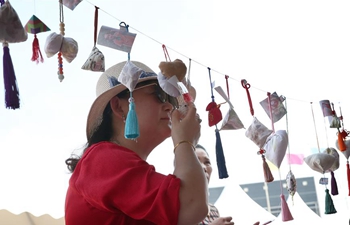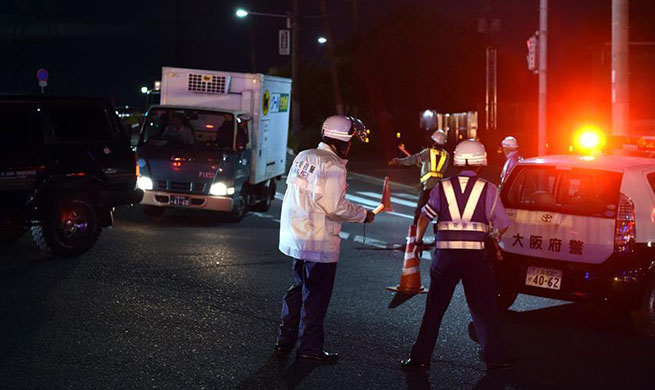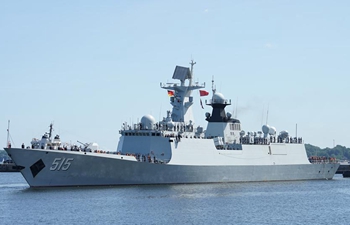BEIJING, June 19 (Xinhua) -- China's central bank continued to inject liquidity into the financial system through open market operations on Tuesday to offset liquidity pressure.
The People's Bank of China pumped 100 billion yuan (about 15.5 billion U.S. dollars) into the market through reverse repos, with 50 billion yuan of contracts maturing, leading to a net injection of 50 billion yuan.
A reverse repo is a process by which the central bank bids and buys securities from commercial banks, with an agreement to sell them back in the future.
The central bank also injected 200 billion yuan via the medium-term lending facility (MLF). The interest rate for the one-year MLF stood at 3.3 percent.
First introduced in 2014 to help commercial and policy banks maintain liquidity, the MLF tool allows lenders to borrow from the central bank by using securities as collateral.
The moves are aimed at offsetting impacts from factors including taxation peaks to ease liquidity pressure, according to the central bank.
The central bank increasingly relies on open-market operations, rather than changes in interest rates or reserve requirement ratios, to manage liquidity in a more flexible and targeted manner.
China has decided to maintain a prudent and neutral monetary policy in 2018 as it strives to balance growth and risk prevention.
















